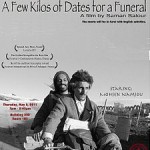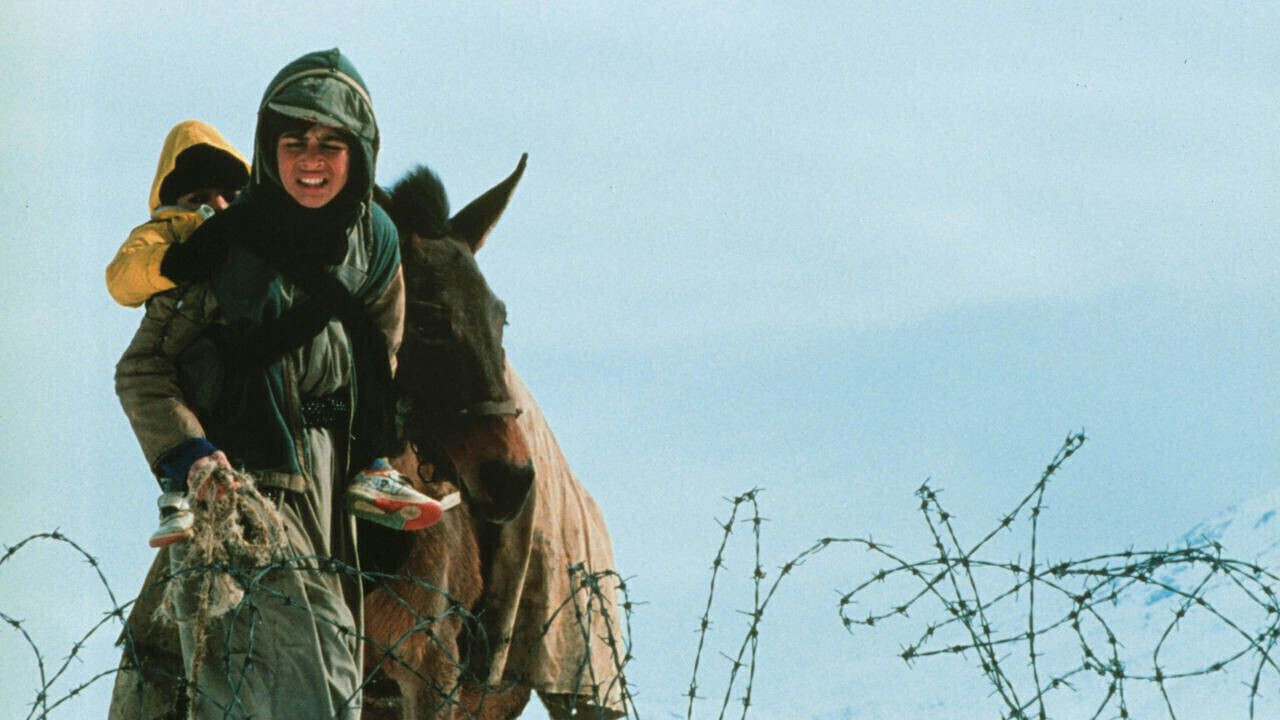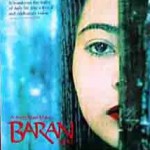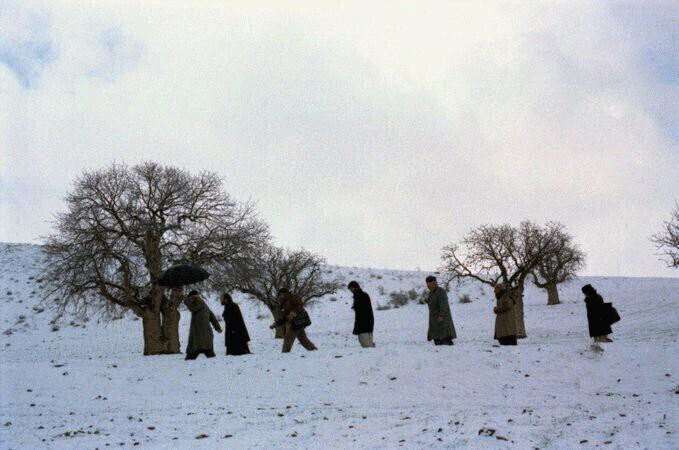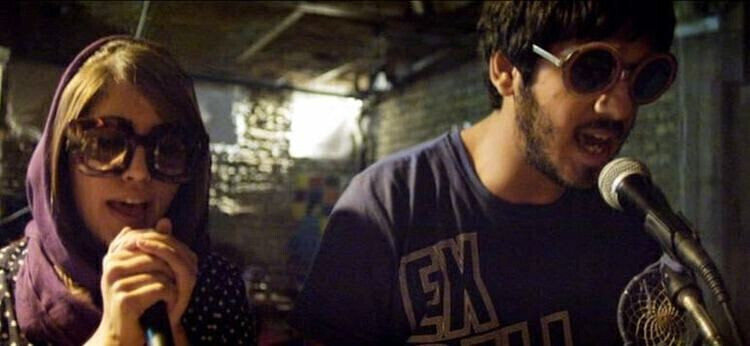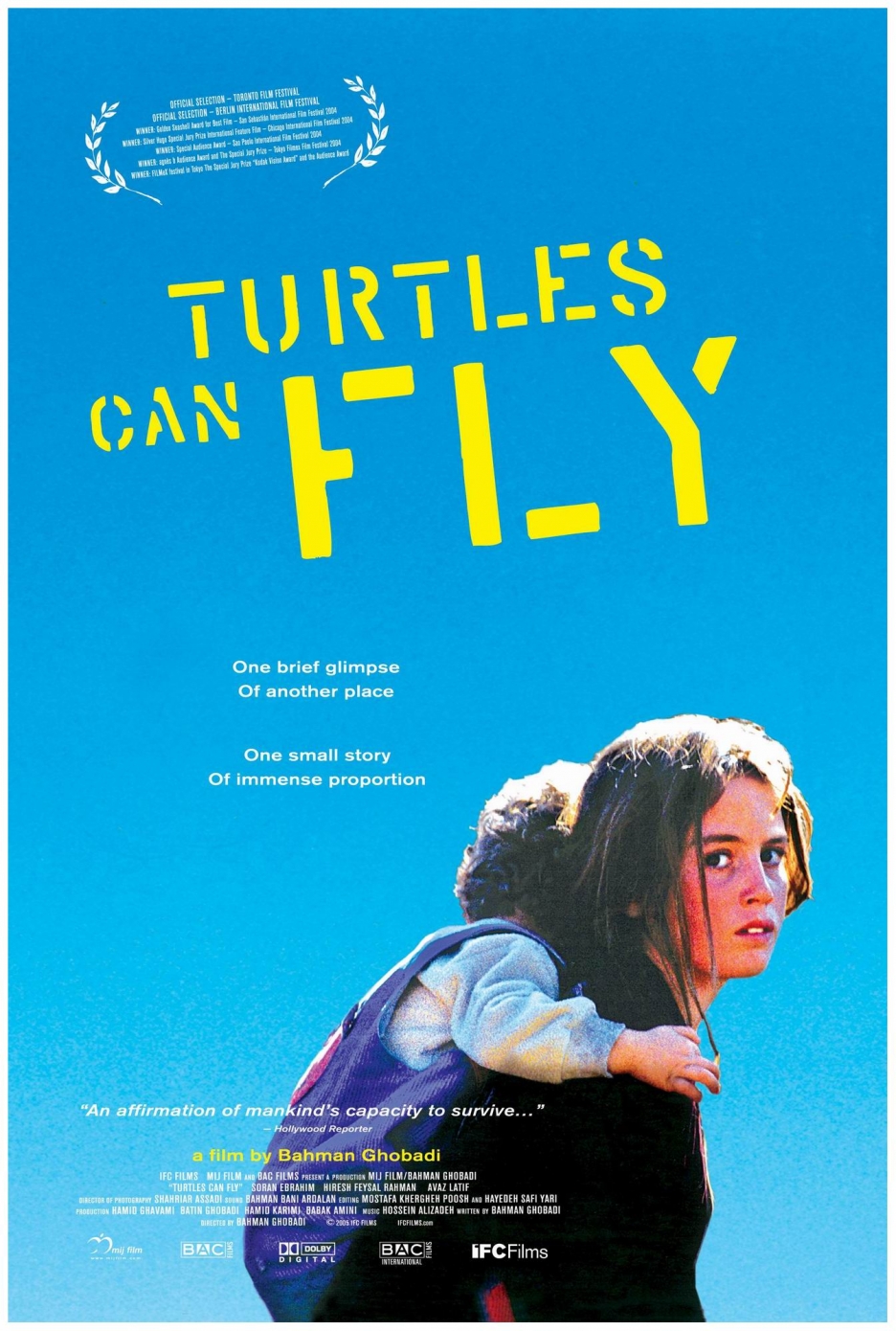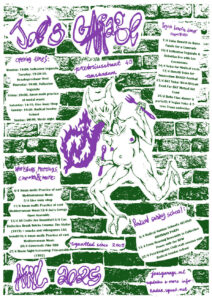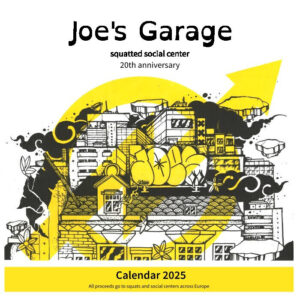Sunday February 15th 2015, Kurdish Iranian new wave cinema: The Songs of My Mothers Land – Marooned in Iraq. آوازهای سرزمین مادریام (گمگشتگی در عراق) by Bahman Ghobadi, 2002, 108 minutes. In Kurdish and Persian with English subtitles. Door opens at 8pm, film begins at 9pm. Free admission.
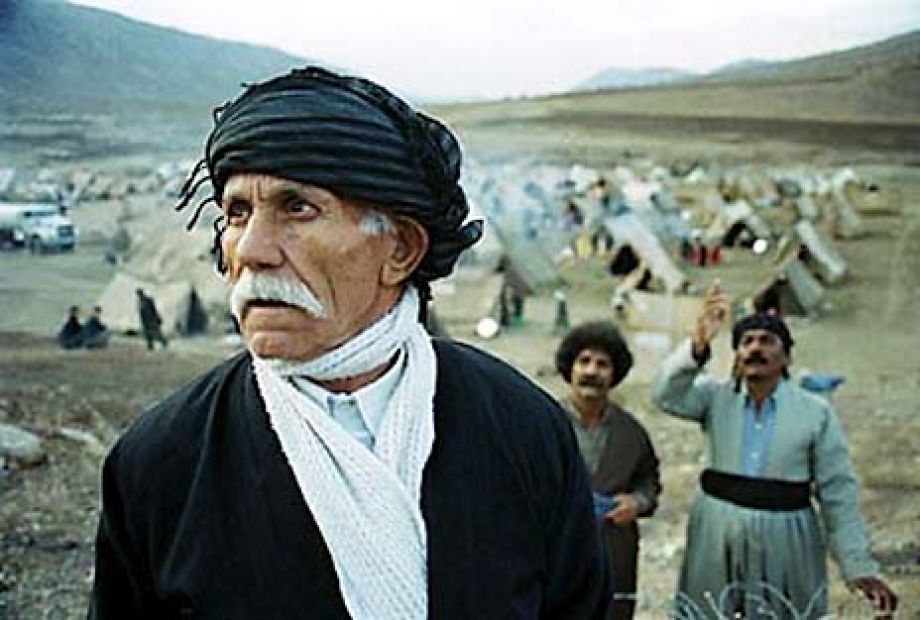 Synopsis: In Iran and Iraq’s postwar years, when Iraq bombs its Kurdistan, an old Iranian Kurd singer, accompanied by his musician sons, start searching for his ex-wife Hanareh. Hanareh, a women singer, has gone to Kurdistan in Iraq. The film is the story of the band’s journey, joined with their music. It is the story of a nation that has always been wandering. Being so used to war, they take it as a game and with their music they celebrate life.
Synopsis: In Iran and Iraq’s postwar years, when Iraq bombs its Kurdistan, an old Iranian Kurd singer, accompanied by his musician sons, start searching for his ex-wife Hanareh. Hanareh, a women singer, has gone to Kurdistan in Iraq. The film is the story of the band’s journey, joined with their music. It is the story of a nation that has always been wandering. Being so used to war, they take it as a game and with their music they celebrate life.
Many years ago before our memories were clouded by the moments of heroic bravery at the hangman’s alter which will, for many Arabs, go on to posthumously defining Saddam Hussein, there were innumerable mass graves, gassed victims, orphaned children and menacing jet fighters roaring in the Kurd skies that reminded people of what Saddam stood for.
Bahman Ghobadi’s “Songs of my motherland” (also known as ‘Marooned in Iraq’) is not just a tale of Mirza the legendary Kurd singer but an epic of his people. As Mirza sets out to seek his rebellious ex-wife, Henareh, a belle who has captured the hearts of the people through her voice and her songs, we are introduced to the nuances and shades of the people of the region.
The Kurds are as rugged as their inhospitable landscape locked between the Arab, Turkish and Iranian nationalists who are willing to forcefully suppress anyone that questions their territorial integrity with calls for a Kurdistan. Yet through the eccentric tribal mannerisms of the Kurdish people and their scant regard for authority the movie reveals the trait of natural defiance comfortably adjusted to a cruel fate that the Kurds have had. […Lees verder]
